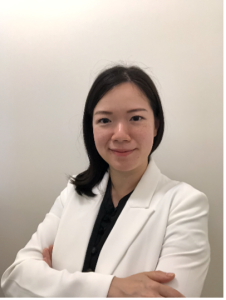The 2023 conference programme is ready!
Please visit the following links for the full programme:
BACS Annual Conference
British Association for Chinese Studies
King’s College London
7-8 September 2023
BACS is pleased to announce that the 2023 Conference of the British Association for Chinese Studies will be held in-person at KCL
k
Keynote Speakers
Karita Kan, Polytechnic University of Hong Kong
Seeds of change: Fifteen years of China’s rural transformation
What can rural China tell us about broader shifts in national policy agenda amidst rising geopolitical tensions and deepening environmental crises? This presentation looks back on the last fifteen years of rural transformation in China from 2008 to 2023 to identify key drivers of change in the country’s development strategies. Following the global food and financial crises of 2007-2008, rural China entered a period of accelerated urbanization and modernization under the National New Urbanization Plan (2014-2020) and Strategic Plan for Rural Revitalization (2018-2022). In recent years, the combined effect of the COVID-19 pandemic and geopolitical instabilities in upending global supply chains and agricultural commodity markets lent further urgency to the Chinese government’s twin prerogatives of spurring domestic consumption through urbanization and ensuring food security through agricultural reforms. Drawing on fieldwork in Guangdong province, this presentation reveals how global forces have intersected with local policies to produce variegated regimes of accumulation in rural localities. Specifically, I contrast two models of development: the commercial redevelopment of villages in the rural-urban fringe led by real estate capital, and the building of agricultural industrial parks spearheaded by dragonhead enterprises. The two regimes represent distinct logics of accumulation and engender varied consequences for rural communities in terms of land rights, forms of labour, and welfare incorporation. It is observed that the ability of rural residents to benefit from the fruits of modernization under the new accumulation regime is uneven, sowing the seeds of deepened inequalities in rural China.
Biography:
Dr Karita Kan is an Associate Professor in the Department of Applied Social Sciences at The Hong Kong Polytechnic University. She is a comparative political scientist by training who received her PhD and MPhil degrees in Politics from the University of Oxford. Her research explores urbanisation and rural transformation in post-socialist China, with a focus on the politics of land and property. She is also interested in state-society relations and grassroots governance in contemporary China. Her publications have appeared in the China Quarterly, China Journal, Journal of Contemporary China, Geopolitics, Geoforum, Journal of Rural Studies, and International Journal of Urban and Regional Research, among others.
Dr Kan is now working on two main projects. The first involves multi-sited ethnographic research in Jiangsu and Guangdong provinces to investigate the impact of land transfer and property rights transformation on peri-urban and rural China. Using a comparative framework based on the varieties of capital investments, the project probes how the influx of corporate capital changes land use and access, restructures local economies, and reconfigures governance relations between state, capital, and communities. The second project is based on fieldwork in Guangdong province and explores the development of rural collective organisations and cooperatives through the lens of institutional change.
Sarah Dauncey, University of Nottingham
Emotional subjects: Citizenship, identity and the emotional world of disability in China
From the positive – joy, hope, pride, love, compassion – to the negative – fear, disgust, anger, despair, shame – emotions and their associated feelings are inextricably woven into the very fabric of our daily lives and experiences. They are, in many respects, very much part of what makes us ‘human’. As such, our own emotional conditions, as well as the emotional reactions of others to us, are intimately linked to how societies understand what makes human life ‘valuable’, what makes a particular individual or group of people, such as disabled people, ‘belong’. While much is known of how different states, such as China, imagine what an inclusive society might look like (and how they plan to get there in terms of concrete actions), very little is known about what an inclusive society might actually feel like. What role do emotions play in mobilising the engagement of disabled and non-disabled people with the various values and processes of citizenship for disabled people? How do disabled people themselves feel about and react to those discourses of belonging? In this talk Sarah Dauncey draws on her understanding of para-citizenship – a new concept built around sociological theories of citizenship and identity – to reveal the highly emotional world of disability-making and disability-living in China. She looks not only at how traditionally accepted or institutionally determined notions of personhood and normalcy, the factors that determine the boundaries of citizenship, are often challenged through encounters and interactions with disability, but also how emotions play a fundamental role in the ways disabled people are included in or excluded from the dominant discourses of what makes an ‘ideal’ citizen there.
Biography:
Sarah Dauncey is Professor of Chinese Society and Disability in the School of Sociology and Social Policy at the University of Nottingham. She has published extensively on gender, culture and identity in pre-modern, modern and contemporary China. Most recently, she has pioneered a new field relating to disability in modern and contemporary Chinese culture and society. The results of this project have resulted in numerous articles and book chapters, as well as a monograph – Disability in Contemporary China: Citizenship, Identity and Culture (Cambridge University Press, 2020). Alongside this present study of disability and emotions, she is also involved in three further projects – one legal (exploring guardianship for elderly and disabled people in China), another geographical (mapping toilet accessibility in southern China) and another sociological (examining the sporting experiences of people with cerebral palsy in the UK).
To submit a proposal for a paper or a panel please send a word document to bacsconf23@gmail.com.
If you want to propose a paper, please put ‘PAPER’ in your email subject line. In your word document please give details of your name, email address and institutional affiliation (departmental and university). Please also state your paper title and provide a 250-word abstract.
If you want to propose a panel, please put ‘PANEL’ in your email subject line. In your word document please give the name, email address and institutional affiliation (departmental and university) of the organizer and each of the presenters. As panels are 90 minutes, it is recommended that panels have four presenters. Please include an abstract to describe the panel overall and then an abstract for each of the papers.
Preference will be given to panels over individual papers. Panels need to be diverse with respect to gender, ethnicity, and the career stage of the participants – please explain how your panel meets this diversity requirement in your submission.
If you have any questions, please email chris.berry@kcl.ac.uk.
Key dates
- Call for Papers: Now Open
- Deadline for submission of proposals (250 words) is extended to 15 May
- Notification of acceptance: June 2023
- Conference dates: 7-8 September 2023
We hope to be able to announce conference fees soon.
BACS members are eligible for a reduced conference registration fee.
How to become a BACS member or to renew your membership
The registration for the 2023 conference is now open, please visit https://bacsuk.org.uk/announcement-for-the-2023-bacs-conference-registration for more information.

